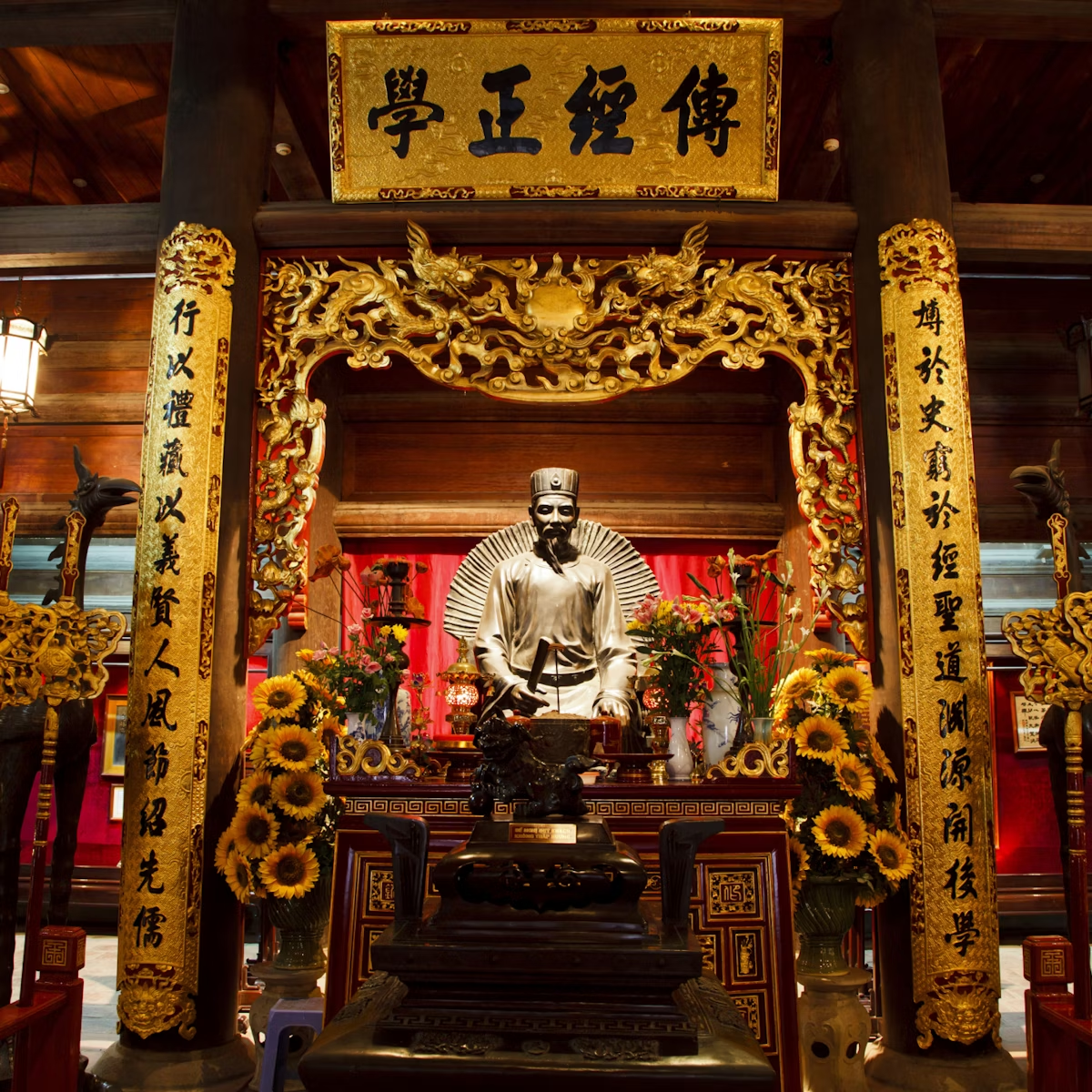
Hanoi
Set amidst landscaped grounds near the centre of Hanoi, the Temple of Literature honours Vietnam's finest scholars, and also offers visitors a chance to…

Hanoi
Set amidst landscaped grounds near the centre of Hanoi, the Temple of Literature honours Vietnam's finest scholars, and also offers visitors a chance to…

Hanoi
This thought-provoking site is all that remains of the former Hoa Lo Prison, ironically nicknamed the ‘Hanoi Hilton’ by US prisoners of war (POWs) during…

Hanoi
Legend claims that, in the mid-15th century, heaven sent Emperor Le Loi a magical sword, which he used to drive the Chinese from Vietnam. After the…

Imperial Citadel of Thang Long
Hanoi
Added to Unesco's World Heritage List in 2010, Hanoi's Imperial Citadel was the hub of Vietnamese military power for over 1000 years. Ongoing…

National Museum of Vietnamese History
Hanoi
Built between 1925 and 1932, this architecturally impressive museum was formerly home to the ├ëcole ╣≤░∙▓╣▓╘├º▓╣╛▒▓⌡e dΓÇÖExtr├¬me-Orient. Its architect, ErnestΓǪ
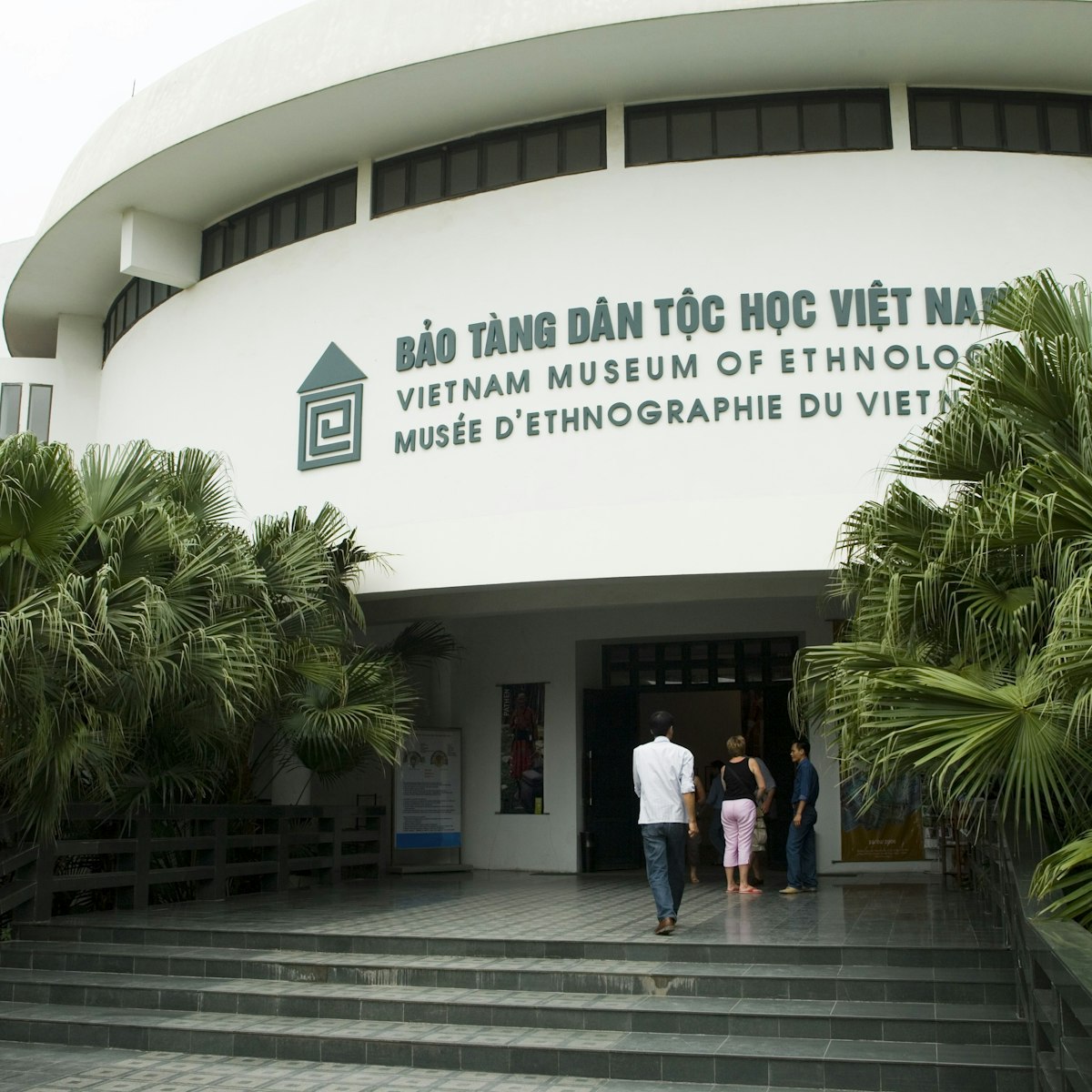
Hanoi
This fabulous collection relating to Vietnam's ethnic minorities features well-presented tribal art, artefacts and everyday objects gathered from across…

Hanoi
In the heart of the Old Quarter, the small Bach Ma Temple (literally 'White Horse Temple') is said to be the oldest temple in the city, though much of the…
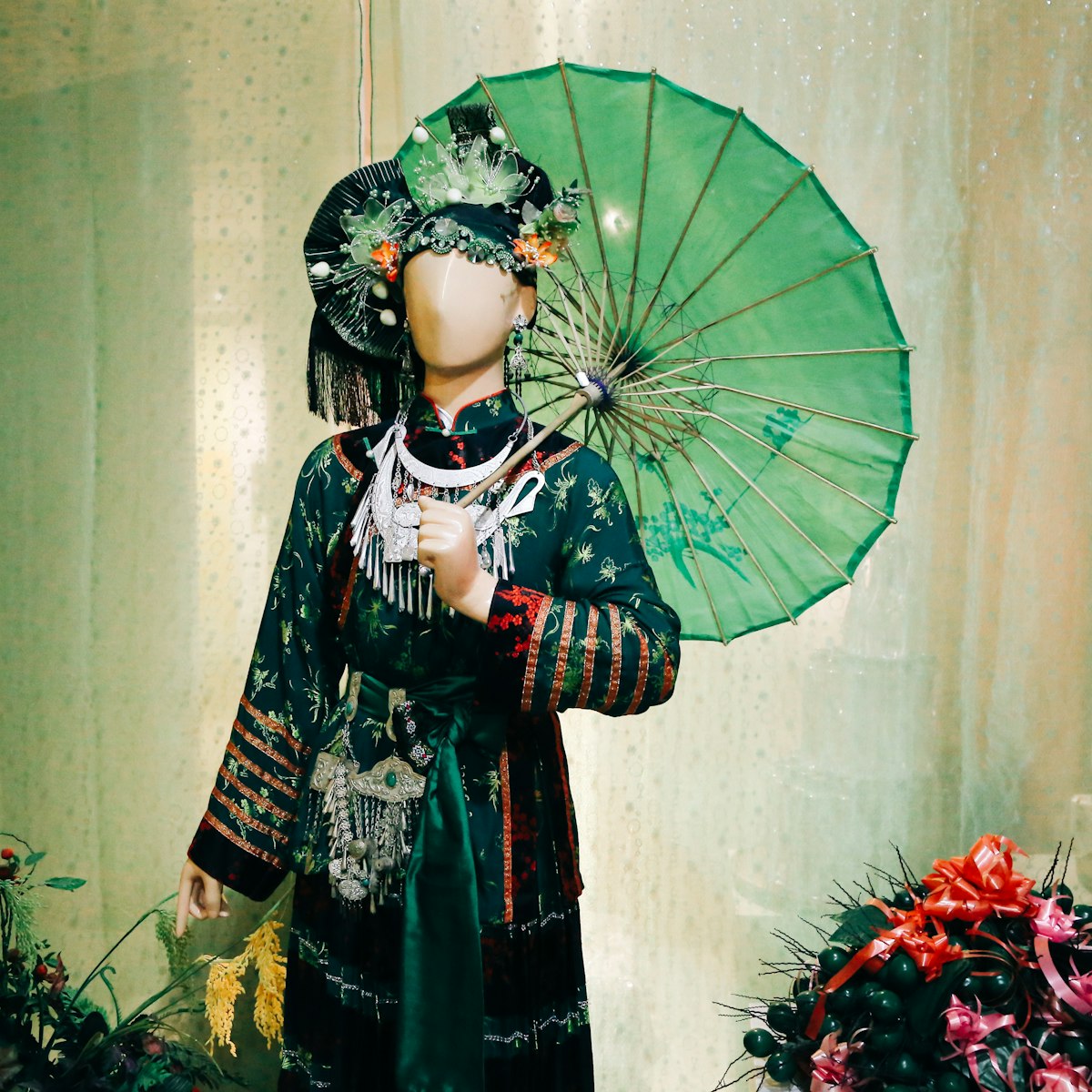
Hanoi
This excellent and highly informative museum showcases the roles of women in Vietnamese society and culture. Labelled in English and French, exhibits…

Hanoi
One of the Old Quarter’s best-restored properties, this traditional merchants’ house is sparsely but beautifully decorated, with rooms filled with fine…

Hanoi
Two kilometres south of Hoan Kiem Lake, this temple was founded in 1142. A statue shows the two Trung sisters (from the 1st century CE) kneeling with…

Hanoi Region
Formerly a French hill station, the triple-peaked Ba Vi Mountain (Nui Ba Vi) has been attracting visitors for decades and remains a popular weekend escape…

Hanoi
In the tradition of Lenin, Stalin and Mao, Ho Chi Minh’s Mausoleum is a monumental marble edifice. Contrary to Ho Chi Minh’s desire for a simple cremation…

Hanoi Region
Located 16km north of Hanoi's Old Quarter and dating from the 3rd century BCE, Co Loa Citadel was the first fortified citadel in Vietnamese history and…
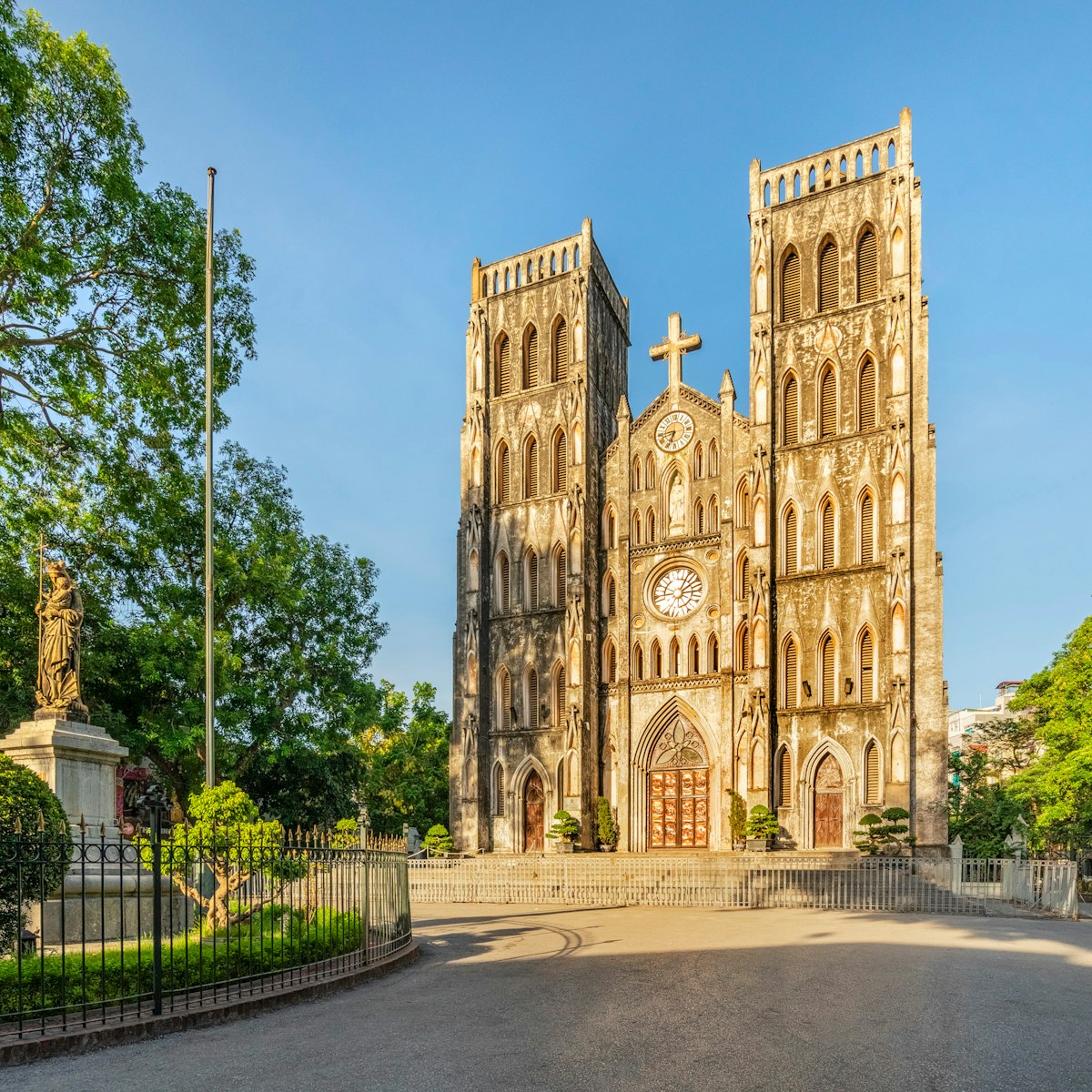
Hanoi
Hanoi's neo-Gothic St Joseph Cathedral was inaugurated in 1886, and has a soaring facade that faces a little plaza that's usually stuffed with selfie…

Vietnam Military History Museum
Hanoi
Easy to spot thanks to a large collection of weaponry at the front, the Military Museum displays Soviet and Chinese equipment alongside French- and US…
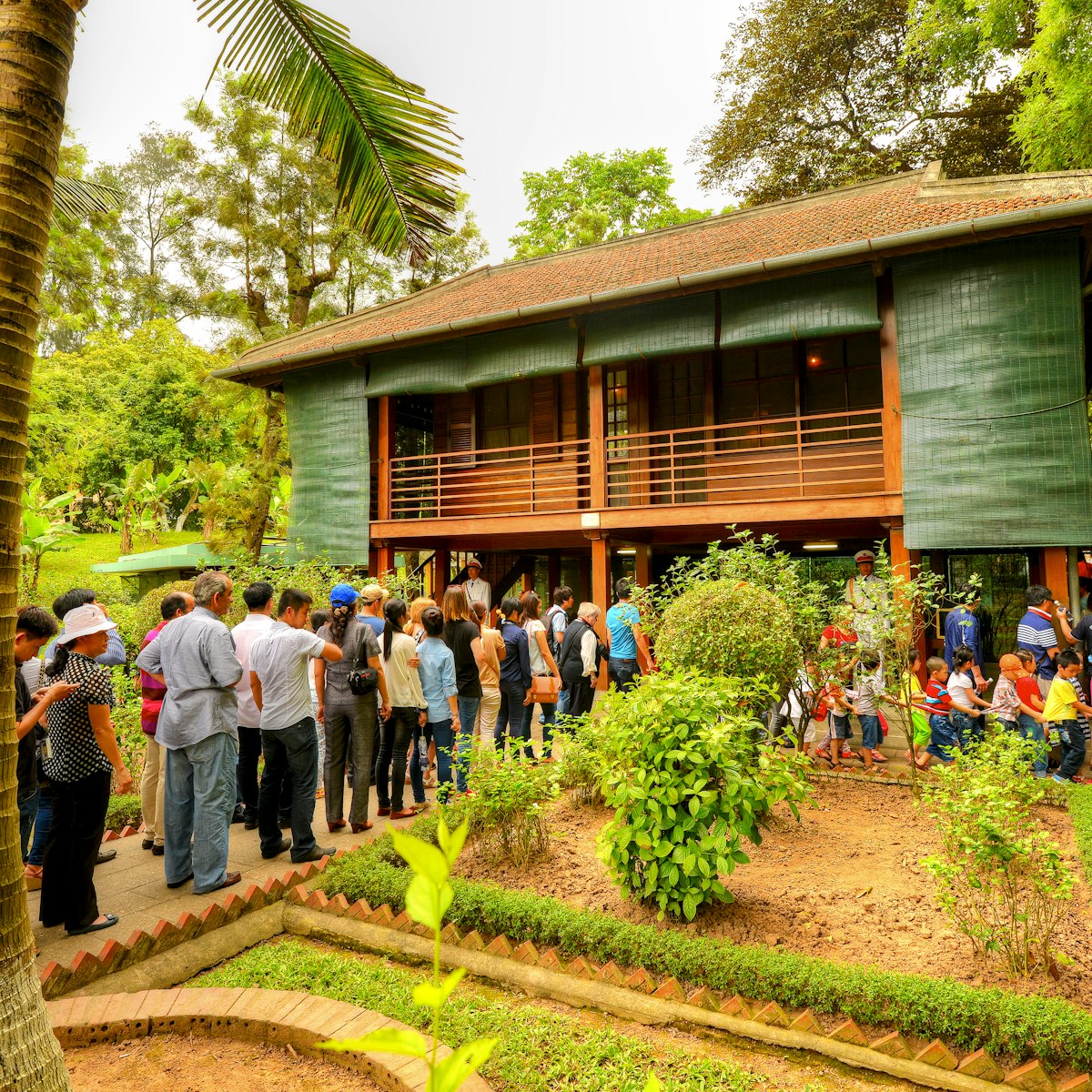
Hanoi
This humble, traditional stilt house where Ho lived intermittently from 1958 to 1969 is set in a well-tended garden adjacent to a carp-filled pond and has…

Hanoi
The One Pillar Pagoda was originally built by the Emperor Ly Thai Tong who ruled from 1028 to 1054. According to the annals, the heirless emperor dreamed…

Hanoi
The city's best views can be found on the 65th-floor 360-degree Observation Deck of the landmark Lotte Center in the western corner of Hanoi's Ba Dinh…

Hanoi
The Ho Chi Minh Mausoleum Complex is an important place of pilgrimage for many Vietnamese. A traffic-free area of botanical gardens, monuments, memorials…

Hanoi Region
About 30km west of Hanoi, Tay Phuong Pagoda, also known as Sung Phuc Pagoda, consists of three single-level structures built in descending order on a…

Hanoi
The excellent Fine Arts Museum is housed in two buildings that were once the French Ministry of Information. Treasures abound, including ancient Champa…

Hanoi
Meaning 'Temple of the Jade Mountain', Hanoi's most visited temple sits on a small island in the northern part of Hoan Kiem Lake, connected to the…

Hanoi
This glorious neoclassical centrepiece of Hanoi's French Quarter is unmissable with its Gothic pillars and domes. The French-colonial 900-seat venue was…

Hanoi
The city’s largest lake, West Lake is 15km in circumference and ringed by upmarket suburbs, including the predominantly expat Tay Ho district. On the…
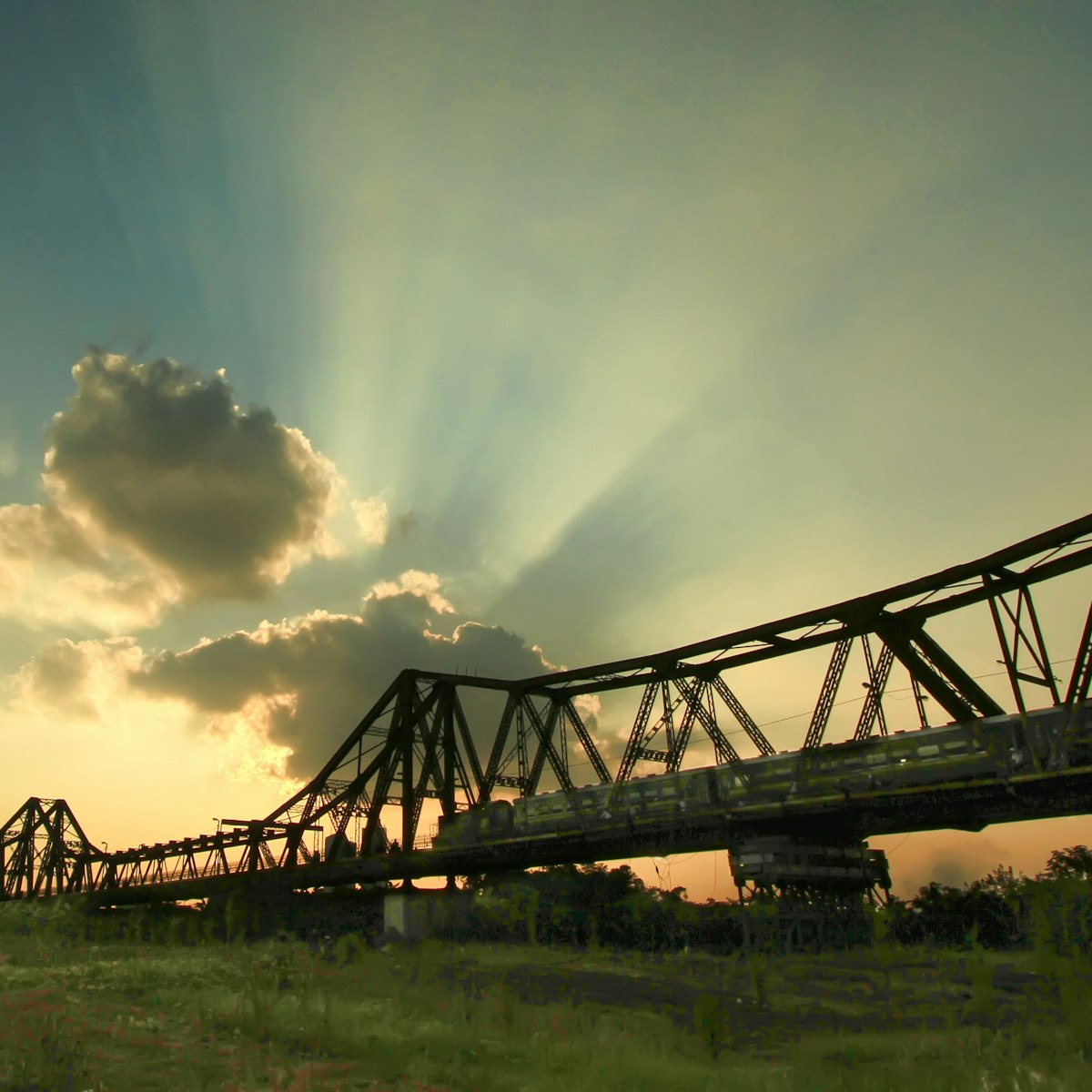
Hanoi
A symbol of the tenacity and resilience of the Hanoian people, the Long Bien Bridge (built between 1899 and 1902) was bombed on several occasions during…

Hanoi
One of the oldest pagodas in Vietnam, Tran Quoc Pagoda looks new with its clean orange bricks. What gives it a photogenic advantage is the backdrop of the…

Hanoi
The largest covered market in Hanoi was originally built by the French in 1889 and almost completely destroyed by fire in 1994. Almost everything you can…

Hanoi Region
This striking complex of pagodas and Buddhist shrines is built into the karst cliffs of Huong Tich Mountain (Mountain of the Fragrant Traces). Among the…

Hanoi
This dramatic monument depicts a woman with a sword and one man holding a rifle and another a torch. It was erected as a memorial to those who died…

Hanoi Region
Also known as Thien Phuc (Heavenly Blessing), Thay Pagoda is dedicated to Thich Ca Buddha (Sakyamuni, the historical Buddha). To the left of the main…

Hanoi Region
Tam Dao National Park was designated in 1996 and covers much of the area around the town. With a Chinese etymology, Tam Dao means ‘Three Islands’, and the…

Hanoi Region
A throwback to the 1980s, this graphic museum, about 13km southwest of Hanoi's Old Quarter, is dedicated to the famous supply route from Vietnam's…

Hanoi
The huge concrete Soviet-style Ho Chi Minh Museum is a triumphalist monument dedicated to the life of the founder of modern Vietnam. The often-confusing…

Hanoi
Separated from West Lake (Ho Tay) only by Ð Thanh Nien, this lake is lined with flame trees. During the 18th century the Trinh lords built a palace on the…

Hanoi
Shaded by huge trees, Quan Thanh Temple was established during the Ly dynasty (1010–1225) and was dedicated to Tran Vo (God of the North), whose symbols…

Hanoi
Spanning almost 4km along the Song Hong dyke, from its terminus at the Long Bien Bridge, this mural project holds the Guinness World Record for being the…

Hanoi
This narrow lane is packed with local eateries turning out cheap, tasty food for a few dollars. Ngo Cam Chi translates as ‘Forbidden to Point Alley’ and…

Hanoi
This opulent restored colonial pile was flung up in 1906 as the Palace for the Governor General of Indochina. The yellow (a colour of communism) beaux…

Hanoi
The hexagonal Flag Tower, one of the symbols of Hanoi, is part of the Vietnam Military History Museum complex, though tower-only admission is free from…

Hanoi
A relatively quiet waterfront scene is around the northeast edge of Truc Bach Lake. Many lau (hotpot) restaurants are huddled together in an almost…